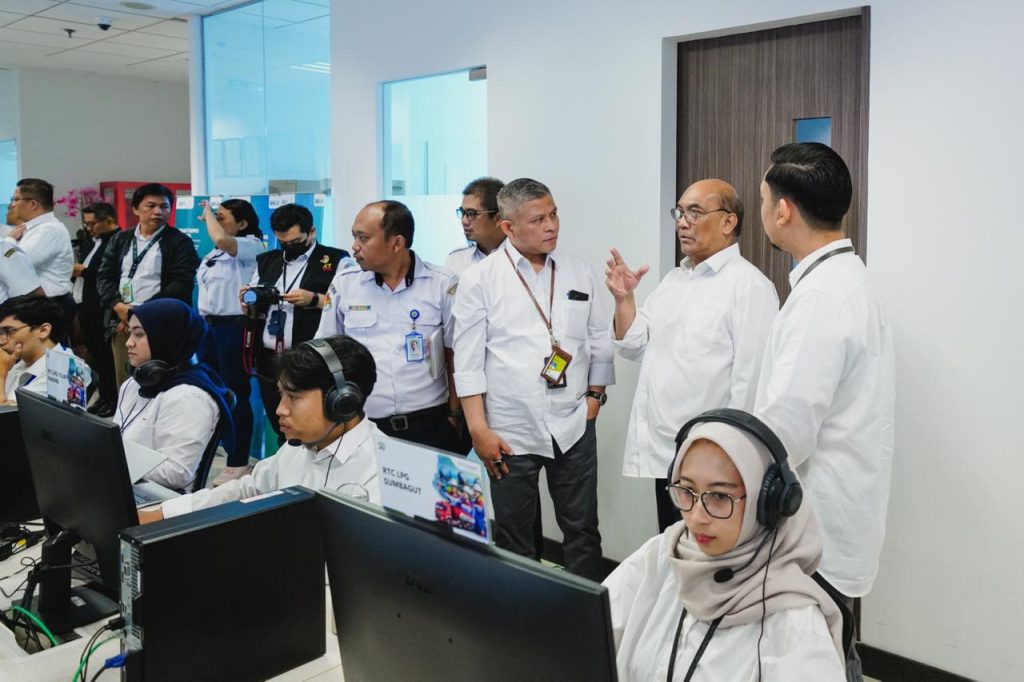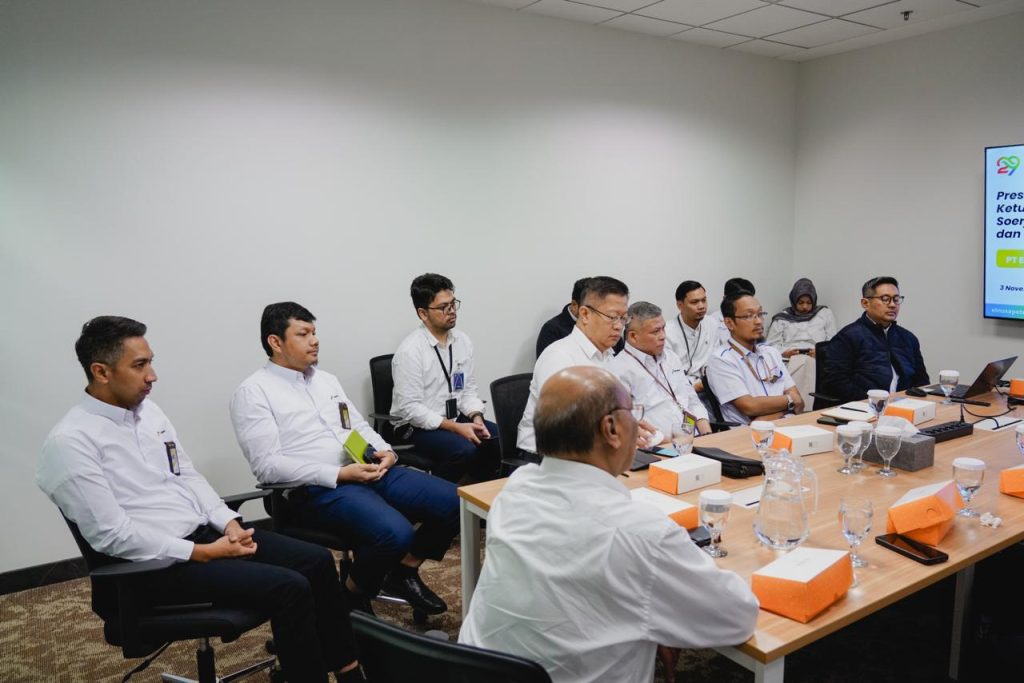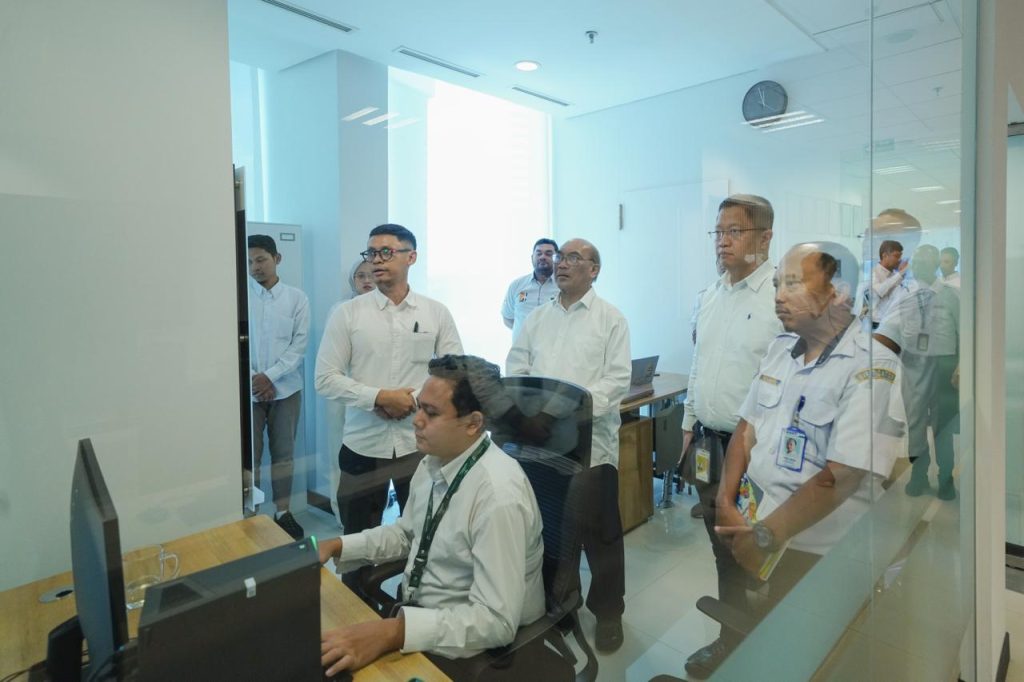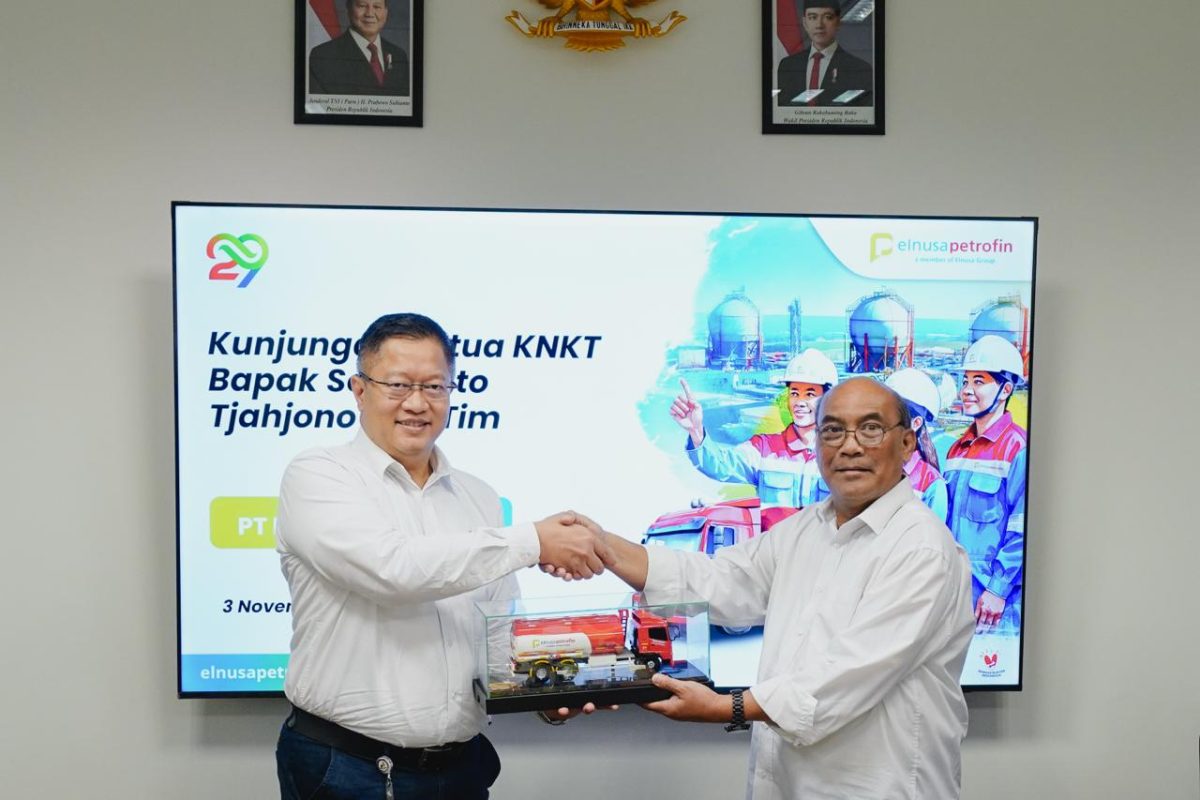In an effort to reinforce governance of national energy transportation safety, PT Elnusa Petrofin (EPN), a subsidiary of PT Elnusa Tbk (ELSA) and part of the Pertamina Group, received an official visit from KNKT to their Road Traffic Control (RTC) facility in Jakarta on Monday (November 3).
Present during the visit were the KNKT Chair, Soerjanto Tjahjono, along with his team, who were welcomed by the President Director of Elnusa Petrofin, Doni Indrawan, together with the Company’s directors, management, Perwira, and Pertiwi of Elnusa Petrofin.
This activity also became a strategic momentum to discuss how to strengthen cross-institutional synergy between the Government and Elnusa Petrofin, as an energy logistics company, particularly in the implementation of digitalization in safety systems and oversight of national energy distribution.

The Road Traffic Control (RTC) system is an integrated control centre developed by Elnusa Petrofin to monitor thousands of tanker-truck fleet journeys in real time. Bolstered by Artificial Intelligence (AI) technology, the RTC facilitates comprehensive monitoring of fleet positions, traffic conditions, estimated travel time, and driver behaviour.
Integration with GPS tracking and AI-based CCTV allows early detection of potential risks such as excessive speed, driver fatigue, or route deviation — so that interventions can be made quickly and accurately to prevent road incidents.
The RTC innovation by Elnusa Petrofin was born from a spirit of collaboration and cross-sectoral learning with KNKT. In 2024, Elnusa Petrofin together with KNKT conducted benchmarking at AirNav Indonesia. This collaboration with KNKT became an important foundation for Elnusa Petrofin in building an intelligent monitoring system that emphasises precision, predictability, and rapid decision-making — and positions RTC as concrete evidence that synergy between industry and national safety institutions can generate strategic innovation in maintaining safety, energy distribution reliability, and public trust in national logistics operations.

Every day, Elnusa Petrofin distributes fuel and lubricants from 53 fuel terminals and integrated terminals through strategic coordination with PT Pertamina Patra Niaga over approximately 410,000 kilometres per day, equivalent to about 150 million kilometres per year, roughly the distance from the Sun to the Earth. The fleet includes more than 2,085 tanker trucks and about 8,000 tanker-truck crews (AMT).
All this energy distribution process is conducted within a strong safety system utilising digital technology, ensuring the reliability of energy supply that spans from Indonesia’s western to eastern regions.
KNKT Chair Soerjanto Tjahjono expressed his appreciation for the innovation carried out by Elnusa Petrofin in supporting the transformation of national energy transportation safety. “We appreciate Elnusa Petrofin for the development of the integrated RTC system. A digital approach like this is a step forward in efforts to strengthen land-transportation safety in the national energy logistics sector. The safety-assessment model applied by Elnusa Petrofin can provide positive learning for the energy-logistics industry. We see a strong commitment to developing a safety system based on data, technology, and cross-institutional learning. This is not only a preventative effort against incidents, but also a strategic step in building sustainable safety governance,” said Soerjanto.
Previously, the digital innovation of Elnusa Petrofin’s RTC also received appreciation from the President Director of PT Pertamina (Persero), Simon Aloysius Mantiri, who considered that Elnusa Petrofin’s step aligns with the digital-transformation direction of Pertamina Group, especially regarding Health, Safety, Security, and Environment (HSSE).
Elnusa Petrofin’s President Director Doni Indrawan expressed his appreciation for the support given by Pertamina (Persero) and KNKT for the company’s digital-transformation efforts. “We thank KNKT for the visit and for continuously encouraging us to innovate in maintaining safety and operational efficiency. Today, the implementation of RTC is part of our commitment to deliver energy distribution that is safe, reliable, and sustainable. This is not just about monitoring more than 8,000 tanker-truck crew members, but about building a technology-based safety culture across our entire operation to continue upholding public trust,” said Doni.
Since the implementation of the RTC system, Elnusa Petrofin has recorded significant improvements in operational efficiency, including reductions in delivery delays and fewer potential travel-incidents thanks to early monitoring and intervention. The RTC now operates as a national control centre operating 24 hours a day, ensuring the entire energy-distribution chain runs in accordance with the principles of Operational Excellence and HSSE Excellence.

In the agenda, the KNKT team was also invited to review the Remote Asset Daily Activity Recorder (RADAR) facility, one of Elnusa Petrofin’s digital innovations to improve operational safety and asset integrity. Through RADAR, Elnusa Petrofin is able to optimize monitoring of assets located in areas that require special and remote monitoring.
Through continuous innovation, Elnusa Petrofin continues to strengthen its role as a pioneer of digital safety transformation in energy transportation — as well as a strategic partner of Pertamina Group in safeguarding national energy resilience that is reliable, safe and sustainable. This KNKT visit also serves as recognition of Elnusa Petrofin’s strategic position as a key part of the national energy-supply chain.


